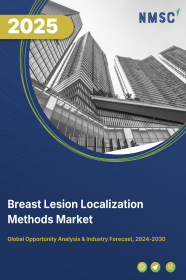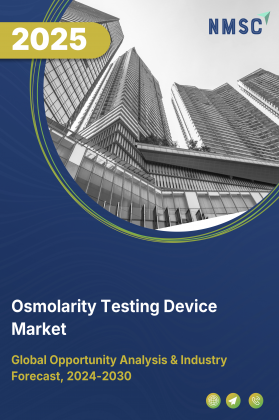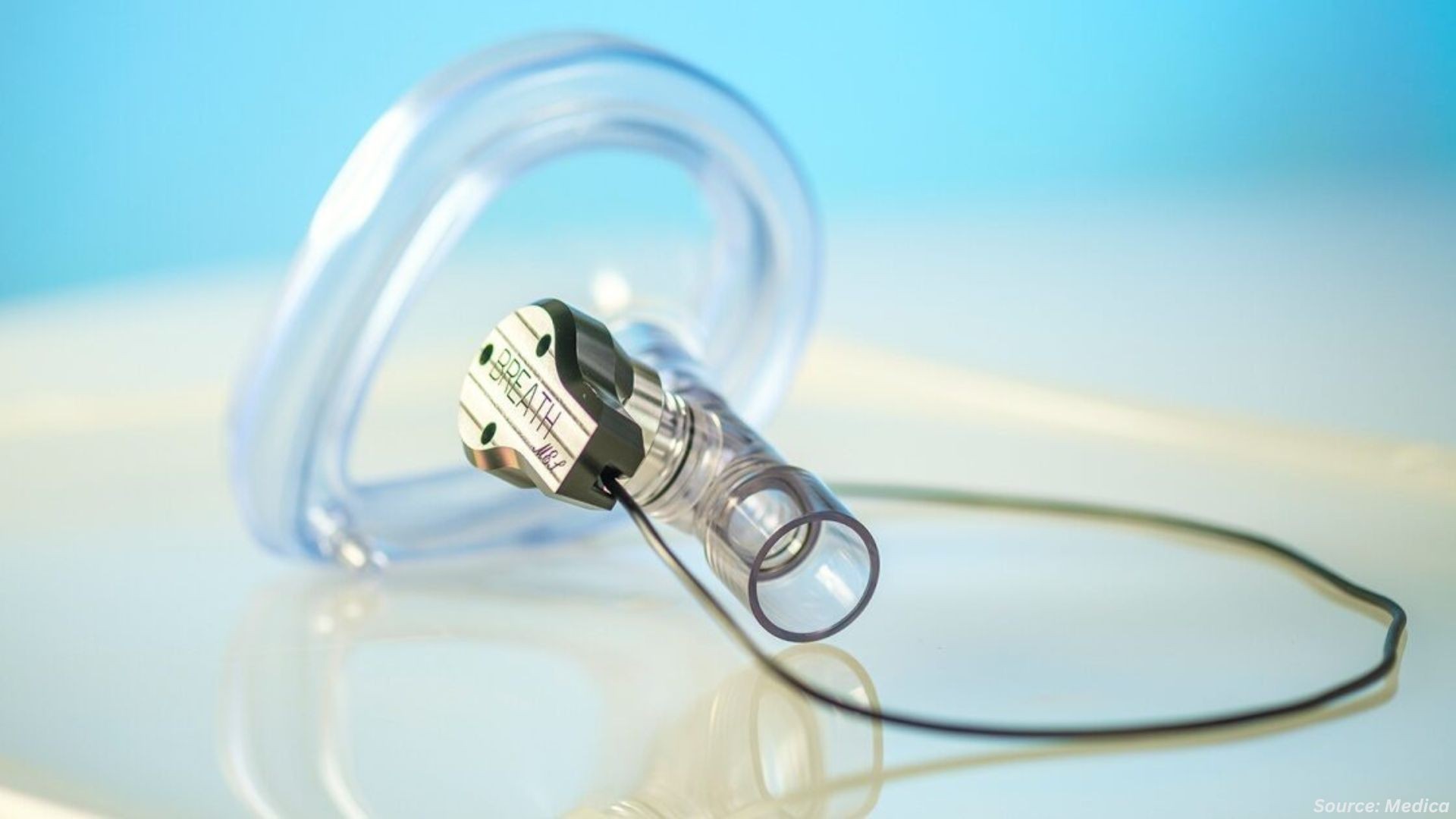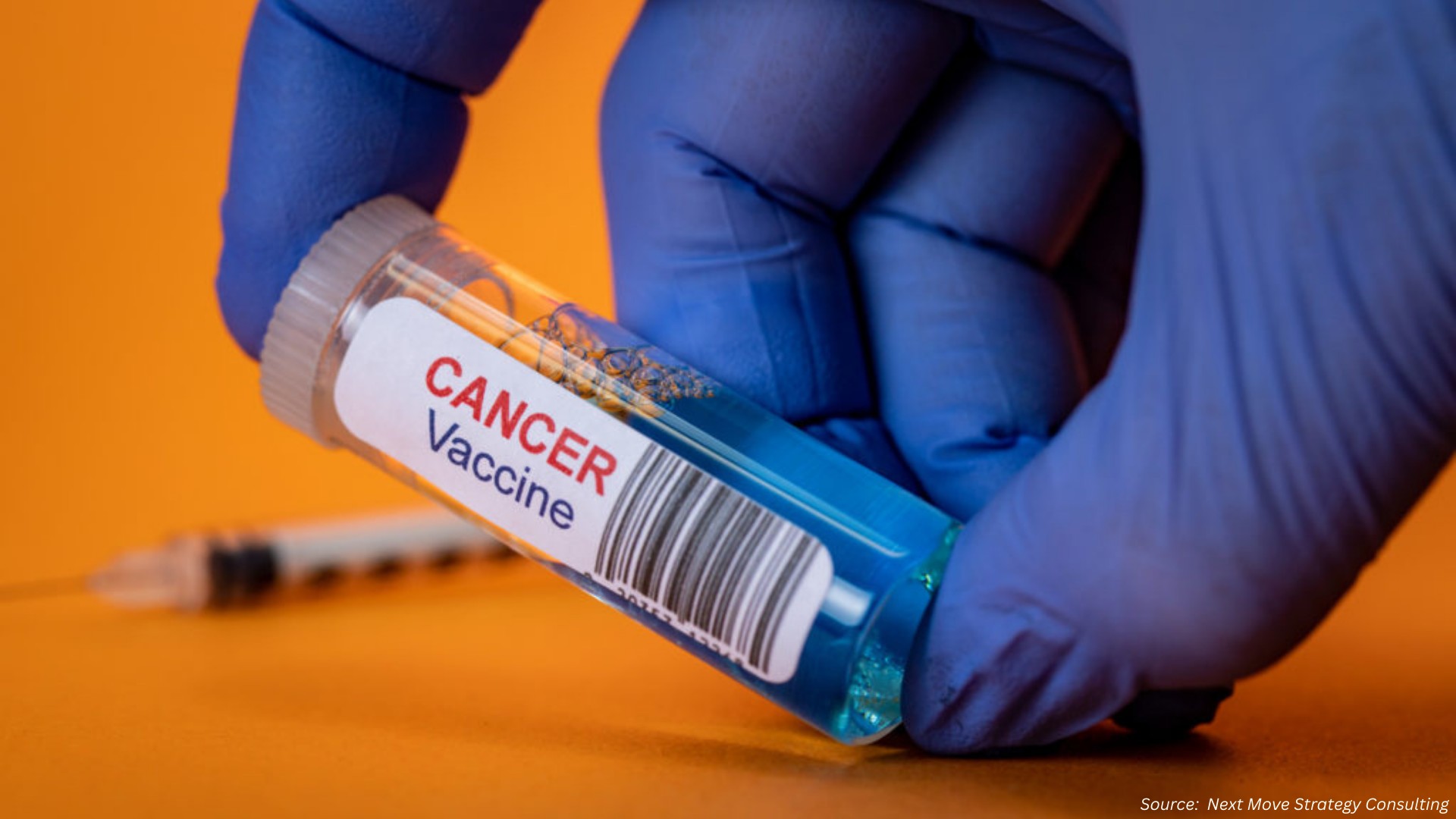
Breast Lesion Localization Methods Market by Type (Wire, Radioisotope, Magnetic, Electromagnetic, and Others), by Biopsy Techniques (Fine Needle Aspiration Biopsy, Core Needle Biopsy, Surgical Biopsy, Incisional Biopsy, Excisional Biopsy, Vacuum-Assisted Breast Biopsy, and Others), by Usage (Tumor Identification and Sentinel Lymph Node Lumpectomy), and by End-Users - Global Opportunity Analysis and Industry Forecast, 2024–2030
Market Definition
The global Breast Lesion Localization Methods Market size was valued at USD 1.55 billion in 2023, and is predicted to reach USD 2.97 billion by 2030, with a CAGR of 9.7% from 2024 to 2030.
Breast lesion is a technique applied to identify injury or abnormal change such as a lump or tumor in the breast tissue. Breast lesion localization methods require accuracy to ensure correct and adequate removal of the lesions or minimize cosmetic disfigurement in the breast. It is a procedure in which localization devices are used to insert into the cancer-detected area to localize a non-palpable lesion at the time of surgical excision.
The abnormalities in the breast can be benign or malignant. A benign lesion is non-cancerous, but a malignant lesion is cancerous and must be removed or treated immediately through a breast lesion localization procedure. The devices used in breast lesions include magnetic tracer, radioisotopes, and wires. They are used in various clinics and research centers.
Market Dynamics and Trends
The prevalence and growing cases of breast cancer across the globe are driving the growth of the breast lesion localization methods market. For instance, according to World Health Organization (WHO), breast cancer was the most common cancer type, accounting for 12% of newly diagnosed annual cancer cases in 2021.
Also, increased uses of oral contraceptives that fuel the risk of breast cancer and rising number of women undergoing surgeries such as breast enhancement, lumpectomy, and surgical biopsy are driving the global market. Moreover, robust healthcare infrastructure paired with new technology penetration such as radar reflectors, radiofrequency identification, and radioactive seeds are propelling the growth of breast lesion localization market.
However, factors such as lengthy approval process and high capital investment in breast lesion localization methods are expected to restrain the growth of market during the forecast period.
On the contrary, increasing government initiatives to spread information regarding the early detection of breast cancer are expected to create ample opportunities for the market in the coming years. For instance, in December 2021, the Australian government launched BreastScreen, a screening program in Australia that provides free mammograms to women aged between 50 and 74 every two years.
Market Segmentations and Scope of the Study
The breast lesion localization methods market report is segmented on the basis of type, usage, biopsy techniques, end users, and geography. On the basis of type, the market is divided into wire-guided, radioisotope localization, magnetic tracer, electromagnetic reflectors, and others.
On the basis of usage, the market is classified into tumor identification, and sentinel lymph node lumpectomy. By biopsy techniques, the market is classified into fine needle aspiration biopsy, surgical biopsy, core needle biopsy, excisional biopsy, incisional biopsy, vacuum-assisted breast biopsy, and others.
On the basis of end users, the market is categorized into hospitals, specialized clinics, research institutes, and ambulatory surgical centres, diagnostic centres, and oncology centres. The geographical breakdown and analysis of each of the aforesaid segments include regions such as North America, Europe, Asia-Pacific, and RoW.
Geographical Analysis
North America holds the lion’s share of the global breast lesion localization methods market at present, and is expected to continue its dominance during the forecast period. This is attributed to factors such as the presence of prominent market players such as Hologic, Inc., Becton, Dickinson and Company, and Molli Surgical that are rapidly innovating products and acquiring the U.S. Food and Drug Administration (FDA) approvals.
For instance, in May 2021, Molli Surgical announced the FDA clearance for MOLLI wire-free localization technology for breast cancer surgery. This technology assists radiologists in detecting lesions quickly and accurately. This further enables surgeons to locate and remove lesions more effectively than before. Also, the rising cases of breast cancer coupled with increasing awareness about breast cancer among the individuals drive the market growth in the region.
For instance, according to the GLOBOCAN 2020 report, Mexico reported 29,929 new breast cancer cases, while Canada reported 274,364 new cases. This shows rise in the cases of breast cancer, which is further expected to increase the demand for diagnostics and surgical procedures for the treatment. This, in turn, boosts the market growth in this region.
On the other hand, Asia-Pacific is expected to show a steady rise in the breast lesion localization methods market, due to increasing cases of breast cancer mainly in the China, which is the fastest growing economy in East Asia. For instance, in 2020, according to estimates by Statista, nearly 416 thousand new breast cancer cases were diagnosed among the Chinese female population.
Also, growing awareness and adoption of breast lesion localization techniques and the ongoing research and trials in breast lesion localization methods are expected to drive the growth of the market.
For instance, in December 2020, according to the Hong Kong Medical Journal (HKMJ), 22 magnetic seed markers were placed in 21 patients under sonographic or stereotactic guidance to localize 21 target lesions. It was found that all 22 magnetic seed markers were successfully removed. This showed that medical professionals ensured the safety and efficacy of magnetic seed localization of non-palpable breast lesions.
Competitive Landscape
Various market players operating in the breast lesion localization methods industry include MOLLI Surgical, Inc., Hologic, Inc., Becton, Dickinson and Company, Cook Medical, Inc., Argon Medical Devices, Inc., Sterylab Medical, Biopsybell Srl, Tsunami S.r.l., Merit Medical, and STERYLABS. These market players are adopting various strategies such as acquisition and approvals across various regions to maintain their dominance in the global market.
For instance, in April 2022, Merit Medical announced the U.S. Food and Drug Administration (FDA) clearance for Scout BX delivery system. This is the first wire-free breast localization solution that can be deployed at the time of stereotactic or MRI-guided biopsy.
Also, in January 2021, Hologic, Inc. announced the acquisition of SOMATEX for USD 64 million to enhance its product portfolio in biopsy site markers and localization technologies. The acquisition will enable Hologic expand its breast lesion localization market portfolio and boost its European sales by taking advantage of Somatex’s direct channel in Germany.
Key Benefits
-
The breast lesion localization market report provides the quantitative analysis of the current market and estimations from 2024 to 2030. This analysis assists in identifying the prevailing market opportunities to capitalize on.
-
The study comprises of a comprehensive analysis of the global market trends including the current and future trends for depicting the prevalent investment pockets in the market.
-
The information related to key drivers, restraints, and opportunities and their impact on the market is provided in the report.
-
The competitive analysis of the market players along with their market share in the breast lesion localization market is mentioned.
-
The SWOT analysis and Porter’s Five Forces model are elaborated in the study.
-
The value chain analysis in the market study provides a clear picture of the stakeholders’ roles.
Breast Lesion Localization Market Key Segments
By Type
-
Wire Localization
-
Radioisotope Localization
-
Radio Guided Occult-Lesion Localization (ROLL)
-
Radioactive-Seed Localization (RSL)
-
Others
-
-
Magnetic Localization
-
Electromagnetic Localization
-
Other Localization Methods
By Usage
-
Tumor Identification
-
Sentinel Lymph Node Lumpectomy
-
Lumpectomy
-
Mastectomy
-
By Biopsy Techniques
-
Fine Needle Aspiration Biopsy
-
Core Needle Biopsy
-
Surgical Biopsy
-
Incisional Biopsy
-
Excisional Biopsy
-
Vacuum-Assisted Breast Biopsy
-
Others
By End Users
-
Hospitals
-
Specialized Clinics
-
Research Institutes
-
Ambulatory Surgical Centres
-
Diagnostic Centres
-
Oncology Centres
By Geography
-
North America
-
U.S.
-
Canada
-
Mexico
-
-
Europe
-
U.K.
-
Germany
-
France
-
Italy
-
Spain
-
Russia
-
Sweden
-
Rest of Europe
-
-
Asia-Pacific
-
China
-
India
-
Japan
-
South Korea
-
Australia
-
Indonesia
-
Singapore
-
Rest of Asia-Pacific
-
-
RoW
-
UAE
-
Saudi Arabia
-
South Africa
-
Brazil
-
Israel
-
Turkey
-
Remaining Countries
-
Key Players
-
MOLLI Surgical, Inc.
-
Hologic, Inc.
-
Becton, Dickinson and Company
-
Cook Medical, Inc.
-
Argon Medical Devices, Inc.
-
Sterylab Medical
-
Biopsybell Srl
-
Tsunami S.r.l.
-
Merit Medical
-
STERYLAB
Report Scope and Segmentation
|
Parameters |
Details |
|
Analysis Period |
2023–2030 |
|
Base Year Considered |
2023 |
|
Forecast Period |
2024–2030 |
|
Market Size Estimation |
Billion (USD) |
|
Market Segmentation |
By Type (Wire, Radioisotope, Magnetic, Electromagnetic, and Others), by Biopsy Techniques (Fine Needle Aspiration Biopsy, Core Needle Biopsy, Surgical Biopsy, Incisional Biopsy, Excisional Biopsy, Vacuum-Assisted Breast Biopsy, and Others), by Usage (Tumor Identification and Sentinel Lymph Node Lumpectomy), and by End-Users (Hospitals, Specialized Clinics, Research Institutes, and Ambulatory Surgical Centres, Diagnostic Centres, and Oncology Centres) |
|
Geographical Segmentation |
North America (U.S., Canada, Mexico) Europe (U.K., Germany, France, Italy, Spain, Russia, Sweden, Rest of Europe), Asia-Pacific (China, India, Japan, South Korea, Australia, Indonesia, Singapore, Rest of Asia-Pacific), Rest of the World (UAE, Saudi Arabia, South Africa, Brazil, Israel, Turkey, Remaining Countries) |
|
Companies Profiled |
MOLLI Surgical, Inc., Hologic, Inc., Becton, Dickinson and Company, Cook Medical, Inc., Argon Medical Devices, Inc., Sterylab Medical, Biopsybell Srl, Tsunami S.r.l., Merit Medical, and STERYLABS. |




















 Speak to Our Analyst
Speak to Our Analyst

























